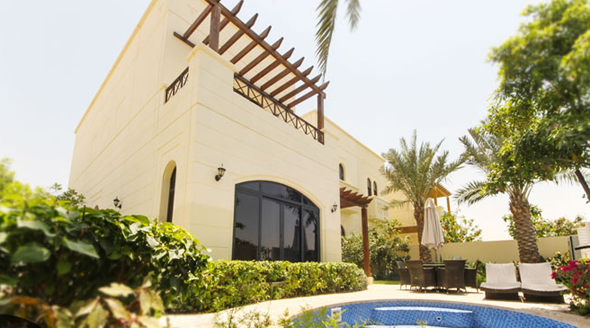Real estate is expensive, so find various ways to save before you spend
First things are special. A first house would top this list — an abode for ourselves. Real estate is expensive and it needs significant planning and savings to be able to afford it. Here are a few ways to maximise your potential to save for your first home.
1. Make strategic use of your savings account
It’s better to maintain a separate savings account to pay for your house. A measure of financial discipline lies in how effectively we commit and not withdraw from such accounts unless it’s for the payment of the house. Maintain the savings account this way until you buy your dream house. The down payment plays a major role in buying a home and reduces the monthly payments you make on your home loan. Most UAE banks have a mandatory 20-25 per cent of the mortgage loan as the down payment. It’s advisable that when saving for your home, you maximise the returns on such savings. While keeping your money in your savings account is of zero risk, you can obtain better appreciation for it if you rather invest in medium-risk mutual funds for moderate returns.
2. Make a savings goal
The path to the savings goal is steep, and it requires changes in financial discipline. As soon as you receive the monthly paycheck, always make it a priority to save a considerable amount — say 10 per cent of your income for the house before spending the remaining.
You can reduce shopping using credit cards, debit cards or even buying things online as intangible money is easier to let go of. Instead, prefer cash to buy things as that gives you a clear picture of what is spent.”
– Shiv Kumar Gupta
This way, you are doing yourself a favour by not putting yourself under the claws of unnecessary expenses. Not only this, you can also cut down unnecessary expenses by living frugally. This can save tonnes of money in the longer term. Also, you can reduce shopping using credit cards, debit cards or even buying things online as intangible money is easier to let go of. Instead, prefer cash to buy things as that gives you a clear picture of what is spent.
3. Grab that second job
A second source of income can bridge that gap between the earning potential of your current job and the savings you need for your first house. Never lose an opportunity to have that second source of income, which can be dedicated to your home purchase. This way you can utilise one source of income for all your daily expenses and the other for your savings. The second job you choose can be a part time job or any job that expresses your talent. Nowadays there are many options to pursue a second career both offline and online. You can be a blogger, a tutor of any sort, a freelancer etc.
4. Maintain a budget
Having a budget is an evergreen tool when it comes to savings and investments. The key essence of a budget is that you are always in control of where you are spending your money. It helps to cut down those impulsive purchases no matter how shiny, tasty or even worthy things may seem if it disrupts your budget. Avoid all the things that are non-essential. The golden rule of budget is that your income should always be greater than expenses. Since we are saving up for a home here, your expenses must factor in the amount you are committed to save every month. Finally, if your total income is less than total expenses, then you need to immediately think of the ways to cut down your expenses.
5. Investments
It’s advisable to save for your down payments and other expenses via investments. Different types of amicable investment options are available including stocks, mutual funds, real estate etc. Make sure to maintain a healthy balance of high and low risk investments, and invest only after you have enough cash for emergency and living expenses. Mutual funds can be opted if your choice is an easy way of investment with good returns. Please be advised though that markets are volatile and you need to exert caution and look before you leap.
All rights reserved to the initial publisher for Gulf News
Collected and published by Arms &McGregor International Realty® editorial team. Get in touch with us at [email protected]

